Prince William is "Considerably Less Transparent" Than King Charles (Part II)
Duchy income is under fire as the calls grow for royal financial reform
What do The Times UK's commentary on the Sovereign Grant Report and the anti-monarchy group, Republic, have in common? They both have a similar solution for reforming royal finances, and it involves consolidating the three current streams of income.
In Part I of this series, I covered one way the royals are funded, through the Sovereign Grant, an annual sum the British Royal Family receives from the government based on a percentage of the profits from the Crown Estate. Despite the name, the Crown Estate is not their private property. King George III “surrendered the earnings from the crown’s hereditary lands in exchange for a stipend” over 250 years ago.
The other revenue streams are the Duchies of Cornwall and Lancaster, which are currently in the hands of the King and Prince of Wales, respectively. Similar to the Crown Estate, there’s ongoing debate over who these land, sea, and property holdings belong to.
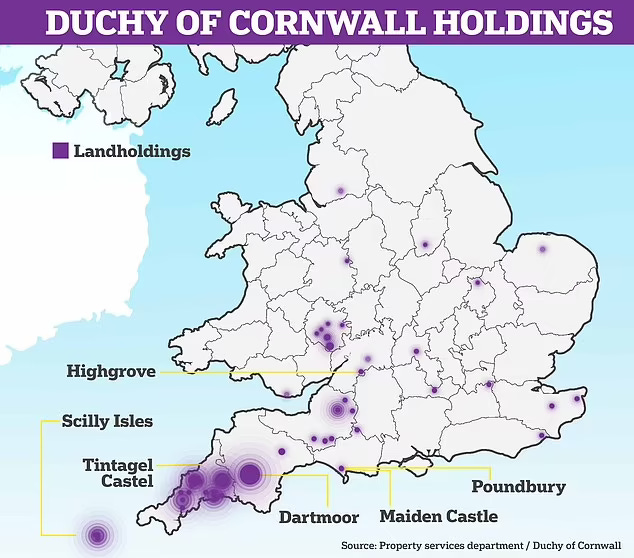
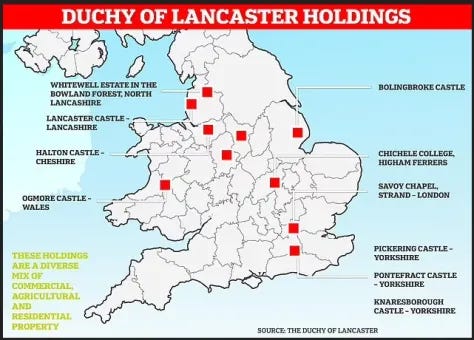
With record profits extensively reported by outlets such as The Guardian and The Times UK, many, like Republic’s CEO, Graham Smith, question the need for a sovereign grant at all.
“It’s all dressed as normal, as private wealth”, Graham Smith told me of the Crown Estate and the Duchies via email, “but all this money could be spent on public services and local communities.”
Monarchists tout that centuries-old royal charters provide “legal justification” for the sovereign and heir to “claim that revenues from the duchies belong to them.” If that’s the case, then King Charles and Prince William are essentially business owners of real estate empires.
Unlike normal businesses, though, they pay no corporation tax or capital gains tax.
They are also not required to pay income tax, although they typically do and disclose what they paid and what was written off. That is one area where Prince William differs from his father.
“Charles, when Duke of Cornwall, released info on tax paid on the duchy income,” Smith told me. In that regard, Prince William is “considerably less transparent”, he added.
Instead of releasing numbers, the Prince’s private secretary, Ian Patrick, said this year, “The Prince of Wales pays the highest rate of income tax.”
Then there are the business deals that The Times UK, in conjunction with Channel 4, uncovered in their explosive report last year.
Among the things brought to light was the fact that the duchies were charging rent to charities, government departments, the NHS, etc. It looks a lot like double dipping.
Beyond that is the hypocrisy it shows in Prince William’s plan as King, something his team has been razor-focused on pushing in the media. As The Times wrote in their commentary:
William’s desire to be a champion for the underprivileged is undermined by this profiteering.
A recent profile of the Prince of Wales wrote that early on in his future reign, “William plans to ‘take every stone and look underneath it’ while assessing the ‘footprint of the institution’”.
Apparently, that doesn’t extend to his tenure as the Prince of Wales.
The Times report did what any good piece of investigative journalism should do: it educated people, and that led to accountability. Unsurprisingly, King Charles’s estate is reviewing rents for next year, and there are reports that Prince William is cutting rent for charities.
Notably, the Duchy of Cornwall will still take “large, taxpayer-funded rents from government departments.” It’s a good start, but only a start. And some people don’t feel it goes far enough.
The Pitch for Reforming Royal Finances
Last year, Republic launched a “Ditch the Duchies” campaign along with a report on what they call the half a billion pound royals. Here’s their proposed plan:
1. Pass all the revenue and assets to a new 'National Estate'.
2. Stop Charles and William from receiving any income from the Duchies.
3. End all legal exemptions given to Charles and William as Dukes.
4. Abolish the Duchies.
“It’s a stepping stone that would help clarify the financial arrangements and property ownership questions surrounding the royals”, Smith told me. The group’s purpose remains abolishing the monarchy. “Putting the Crown Estate onto a more honest footing and scrapping the sovereign grant would help clarify that situation.”
The Times UK also thinks there should be a consolidated National Estate, writing that working royals should be paid with “simple stipends while maintaining royal infrastructure.” They stop short of calling for the abolishment of the duchies.
“The Sovereign Grant was intended to simplify royal finances by combining several grants from different departments into one”, The Guardian wrote in their Cost of the Crown series. But it doesn’t take into account the income from the duchies or “royal costs deemed to fall outside its remit”. It also doesn’t include the cost of security.
And then there’s the unspoken question: How much money do they really need? Should the British Royals still receive income from duchies they claimed centuries ago when the Sovereign was still the head of government?
If the word du jour of William’s future reign is the “impact” the British Royal Family has on its subjects, that should include transparency surrounding their finances and a redistribution of wealth.
-Meredith
Special thanks to my super-sleuth, Amy, for her research assistance.





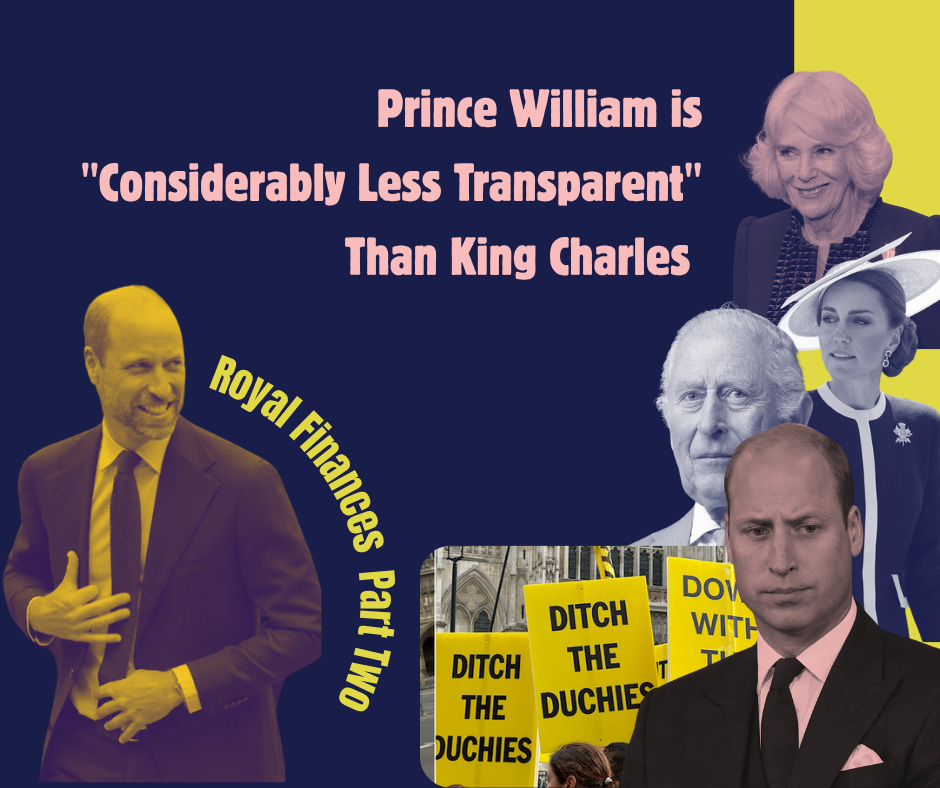




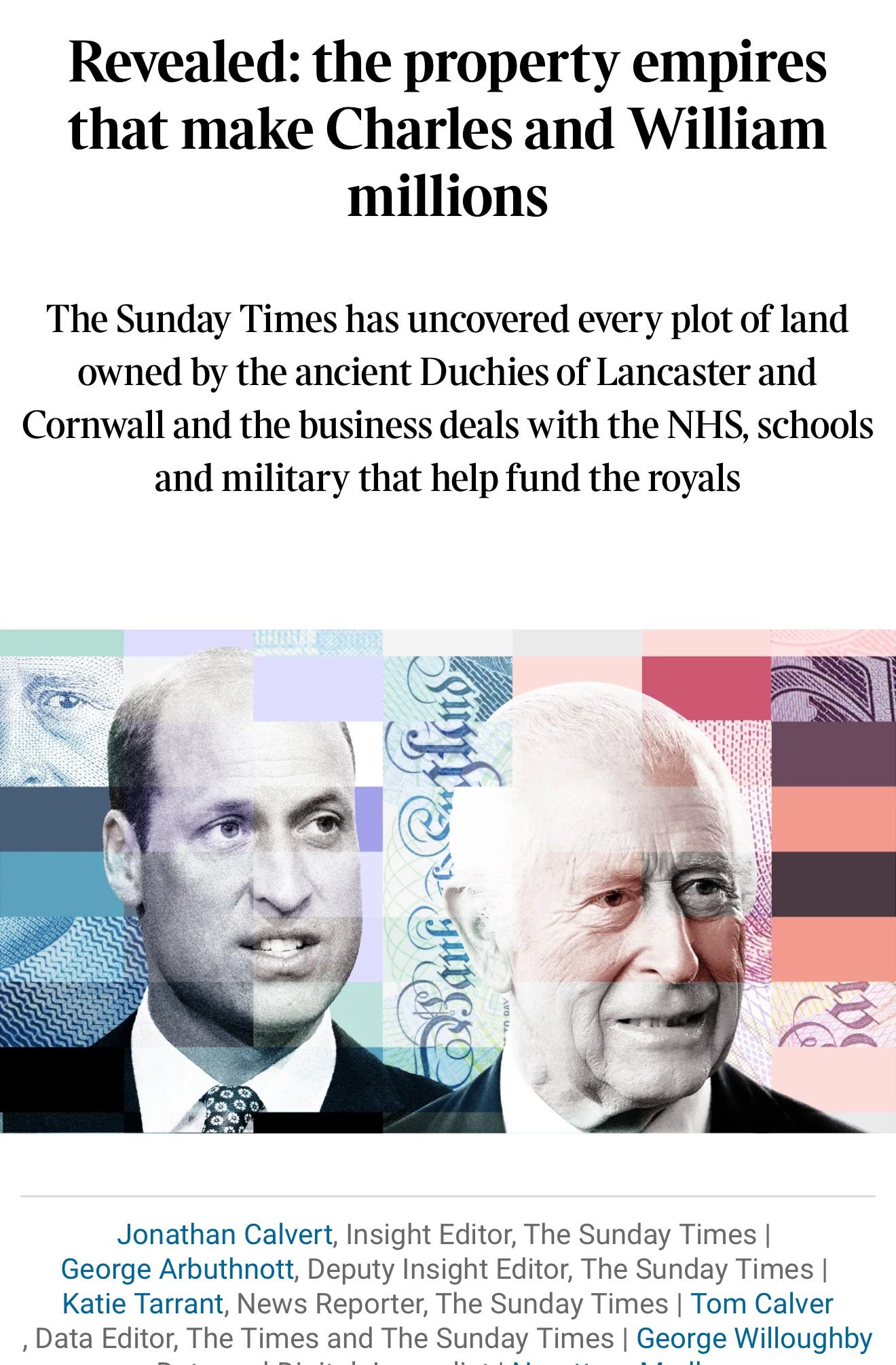

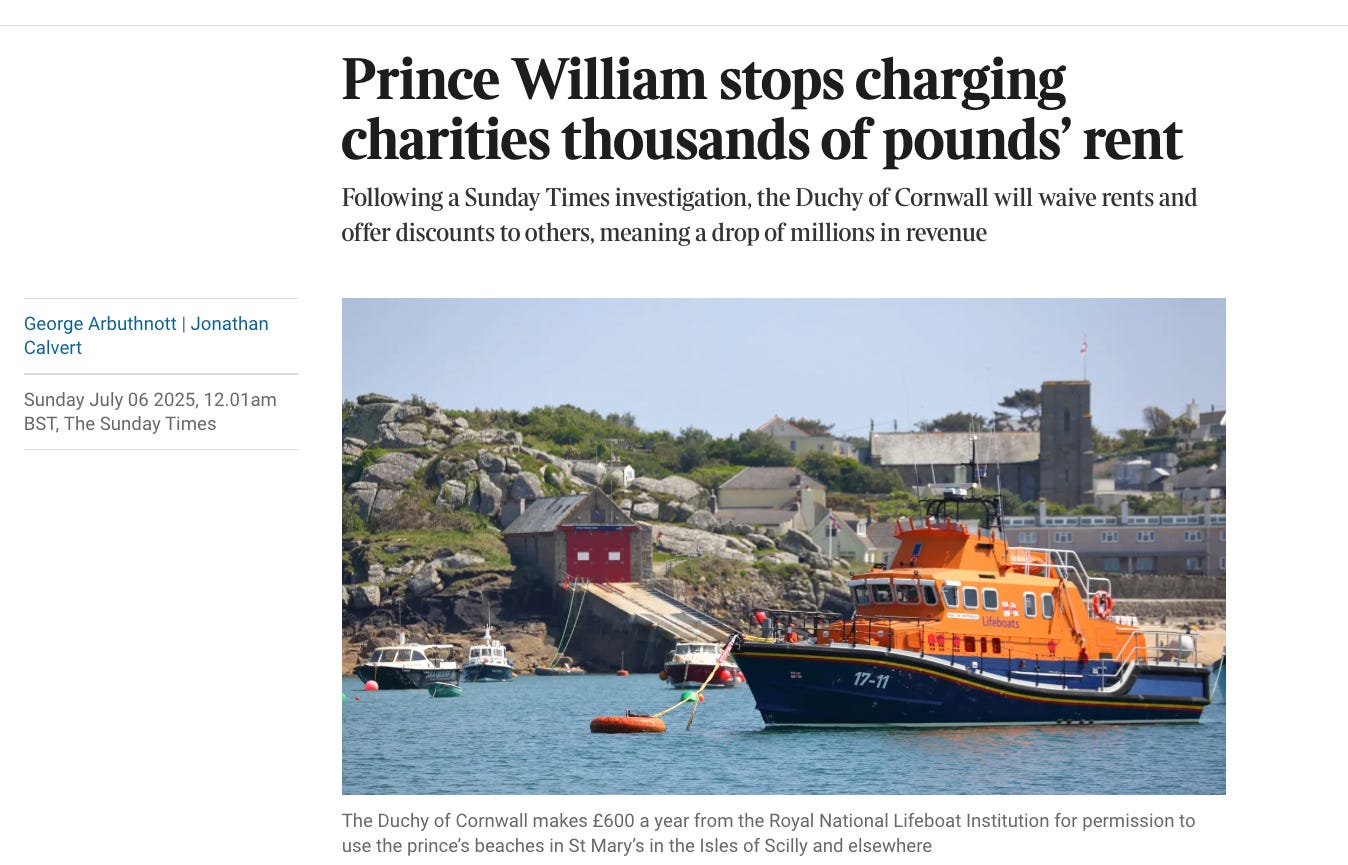
So interesting. A much better look. Thank you Meredith.
Of course, we look at this from our United States lens. We don't have a 1,000 years of monarch rule as a part of our DNA.
However, I can't help but believe shocked at even QEII for taking advantage of the country financially.
I've always thought the term "working royals", somewhat of an oxymoron. The Firm sucks the life out of their country without a second thought.
Reminds me of $400mil planes, $45mil parade. By May we had spent 26mil on his golf weekends... bitcoin, perfume, meme cards, etc.
The Monarchy is as deaf to their people too. That little Island can't handle much more disproportionate handling of what should be their wealth too.